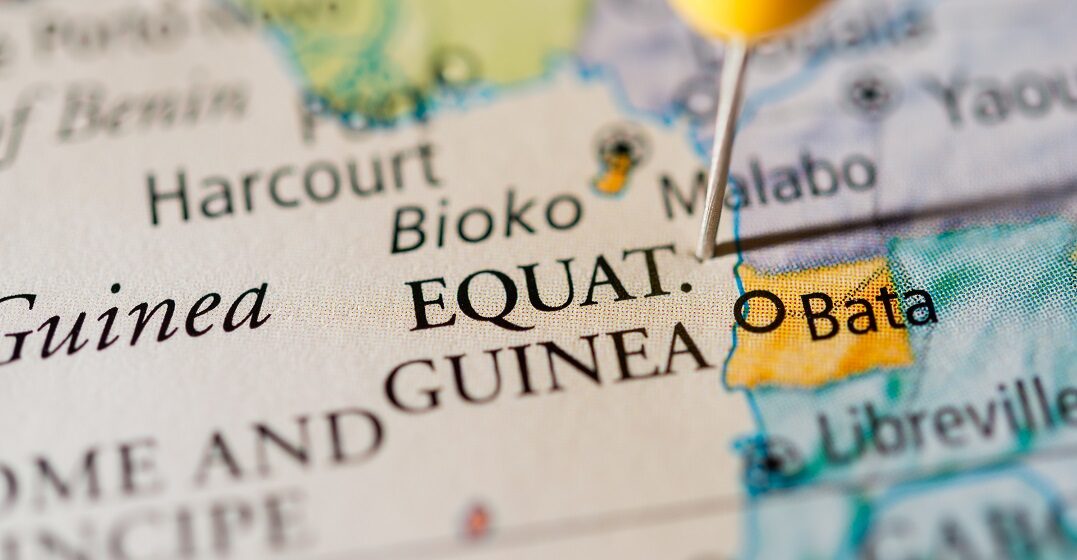by Laura Jones
Published on June 14, 2023
Equatorial Guinea is the only official Spanish-speaking country in Africa. The country was a Spanish colony until 1968, when it gained independence under the “decolonization of Africa” process. Equatorial Guinea was not alone in being under Spanish rule in Africa, though, and Spanish-speaking communities persist in other places on the continent — most notably in Morocco and Algeria.
If you’re looking to visit an African country where Spanish is the official language, Equatorial Guinea (or Guinea Ecuatorial, as it’s known in Spanish) is the place to go. Let’s learn a little more about one of Africa’s smallest, but most diverse, countries.
The name Equatorial Guinea reflects the country’s geographical position: near the equator and in the African region of Guinea. It’s on the west coast of Africa and is bordered by Gabon and Cameroon.
The country is split into two parts: Continental Equatorial Guinea, called Río Muni, and insular Equatorial Guinea, which consists of five islands off the coast. Bioko is the largest island and is home to the country’s capital, Malabo. Equatorial Guinea has a hot and humid climate year-round.
Spanish is one of the official languages of Equatorial Guinea. It’s spoken by about 85% of the population, and it’s the language used in primary school education, government offices and daily communication.
Most people speak a dialect of Spanish called Equatoguinean Spanish. There are some grammatical, pronunciation and vocabulary differences when compared to Castilian Spanish. For example, rather than saying no sé to communicate “I don’t know,” Equatorial Guineans might say Antéose.
Spanish is far from the only language spoken in the country. It’s not even the only official language, as it shares that status with French and Portuguese. Both French and Portuguese are taught in schools — French is compulsory — but neither is particularly widely spoken. Fifteen additional languages are present in Equatorial Guinea, including Fang, Bube and Combe.
Scholars studying Equatorial Guinea have long predicted that Spanish will one day lose its dominance and be overtaken by French, which is spoken in neighboring countries and is becoming the language of business.
So, why do Equatorial Guineans speak Spanish? The country passed through the hands of several colonizers, including the British and the Portuguese, before ending up under Spanish rule in 1844. Equatorial Guinea remained a Spanish colony until 1968, when the country proclaimed independence.
Today, the culture of Equatorial Guinea is a melting pot of Spanish influences and indigenous customs. The food is influenced by both African and Spanish cuisine, and traditional folk music is making a comeback.
Economically, Equatorial Guinea is diverse in less desirable ways. The country discovered oil in 1995 and, while a small proportion of the country’s 1.6 million residents is almost unfathomably wealthy, the majority of people still live in poverty.
Though relatively small, Equatorial Guinea is packed with natural wonders. Tourists don’t flock to the country — in fact, it’s one of the least-visited countries in the world — but that means the landscapes are relatively unspoiled and plant and animal life is thriving.
There are tropical beaches, volcanic landscapes and dense rainforests filled with primates. In the capital, Malabo, colonial architecture rubs up alongside gleaming skyscrapers built off the country’s newfound oil wealth.
A quiz question that baffles others will stump you no longer: Equatorial Guinea is Africa’s only official Spanish-speaking country. Spanish is not only the official language, but is spoken by the majority of the population and used in various aspects of daily life.
However, Equatorial Guinea is home to a diverse linguistic landscape. French and Portuguese also hold official status, and several local languages are spoken as well. With its intriguing mix of history, culture and untouched landscapes, Equatorial Guinea offers a distinctive experience for those seeking an off-the-beaten-path adventure in Africa to practice their Spanish.
